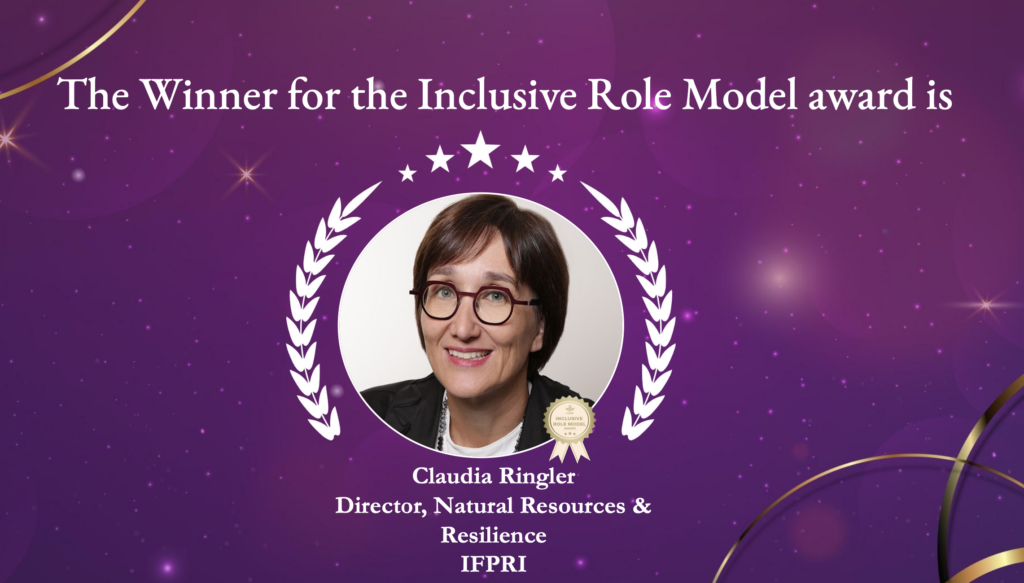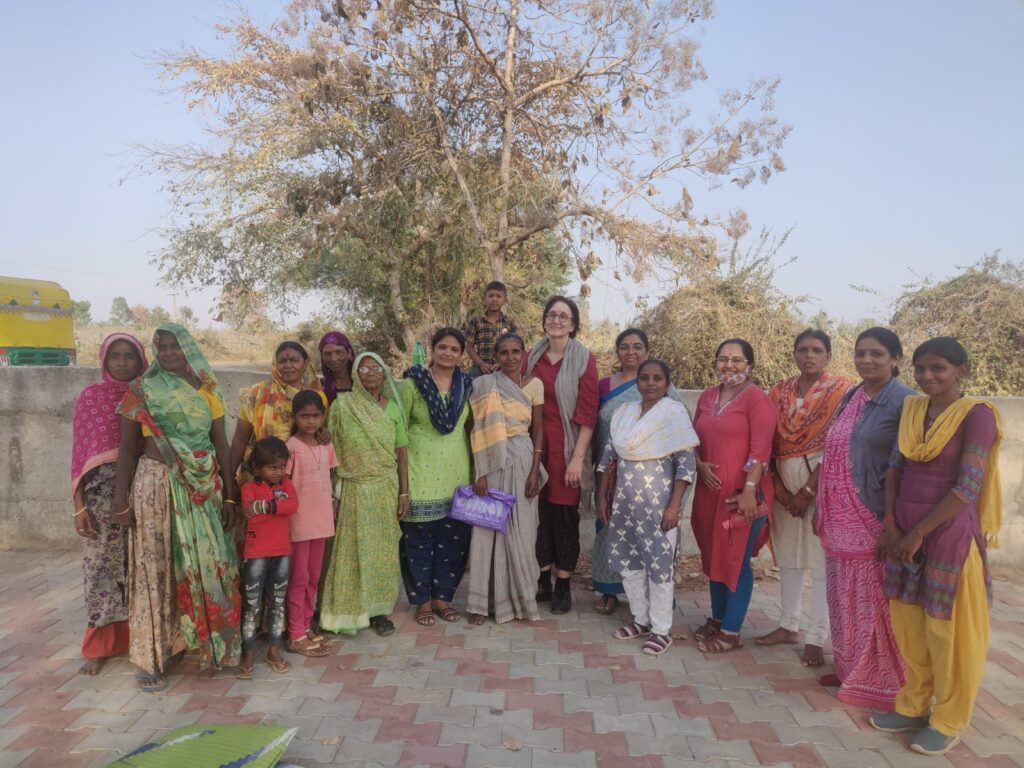Meet CGIAR's Inclusive Role Model of 2024 – Dr. Claudia Ringler, IFPRI (Q&A)
- From
-
Published on
03.12.24

CGIAR’s GDI Oscars recognized star individuals and teams who have made significant contributions to Gender equity, Diversity and Inclusion in our workplaces during an online ceremony on 4 November 2024. The award recipients have answered six questions for their CGIAR colleagues to get to know them better, learn about their motivations and role models.
The Inclusive Role Model Award went to Claudia Ringler, Director, Natural Resources & Resilience, IFPRI. Claudia is a highly inclusive and supportive team leader who prioritizes the success and growth of her colleagues across all levels, fostering a collaborative and respectful environment.

Nominated by many of her colleagues, Claudia actively bridges gaps between headquarters and country offices and values diverse perspectives, ensuring representation in research, conferences, and committees.
“On any writing team, conference panel, or advisory committee she looks out to see that people of diverse backgrounds are included,“ read one testimonial. “And not just as a pro forma ‘to check the boxes‘, but to ensure that there is a diversity of perspectives and expertise.“
Meet Claudia Ringler, Director, Natural Resources & Resilience, IFPRI
What country were you born/did you grow up in?
Germany (a small village in southern Germany)
What languages do you speak?
German is my mother tongue, and I also speak English, Spanish and some French.
When did you join CGIAR and what is your role?
I joined CGIAR in 1996 as a Senior Research Assistant. I did my PhD while at IFPRI and transitioned into various other roles. I am currently the Director of the Natural Resources and Resilience Unit at IFPRI.
Please explain your job, what is your favorite aspect of it and what motivates you to grow in your role.
As Director of the Natural Resources and Resilience Unit at IFPRI, I get to coordinate some of the most exciting research in all of CGIAR (I would think at least 😊). This includes work on climate justice, optimizing water-energy-food-environmental systems, the governance of natural resources and the economics of biodiversity, and equitable AI in food and environmental systems!
What also motivates me is the rapidly growing need for actionable research results that are urgently needed to bridge the growing divide between environmental sustainability and food security; while we used to do quite well on the food security front when I joined IFPRI in the mid-1990s—including thanks to CGIAR’s work; we are now rapidly regressing on both ecosystem health and food security goals, with the number of undernourished and malnourished people rapidly increasing while biodiversity continues to decline and degrade.
The favorite aspect of my current work is to see new research ideas develop through interactions of CGIAR and partners and to witness the use of research results by governments, grassroots women’s organizations, development partners and other research organizations.

Which [scientist, researcher, thinker, leader, philosopher,…] working today do you admire most?
I don’t admire individual researchers, but all researchers who have more limited freedoms than I have with the excellent research facilities and support in CGIAR.
This includes all researchers who face oppression due to their religion, ethnicity, gender and due to focusing research on inequities, wars, migration, gender-based violence and other topics that are often not well received; and all researchers who work under heat stress, with poor electricity, and without funding to talk about their work or to publish their research.
What advice or guidance can you share with colleagues on how to be an inclusive role model?
Inclusive means to not exclude; for CGIAR this means to not exclude anyone from developing research opportunities, methodologies, fieldwork, papers, and from engagement with partners and at professional events.
It is very difficult to do full justice to equity but being serious about this is an important first step. It also includes active listening, which goes beyond understanding of what was said to also understanding why it was said. This is particularly important in today’s increasingly fragmented world.
Being inclusive also means to communicate in a manner that is inclusive. In our post-COVID work environment, inclusive communication also matters more than ever before. I think we could all do more in all three areas of inclusivity and bring more of our partners along in this journey!
About IFPRI
Established in 1975, the International Food Policy Research Institute provides research-based policy solutions to sustainably reduce poverty and end hunger and malnutrition in developing countries. Learn more about the important work at IFPRI here.
